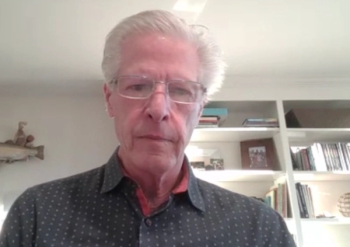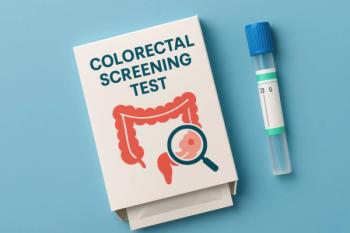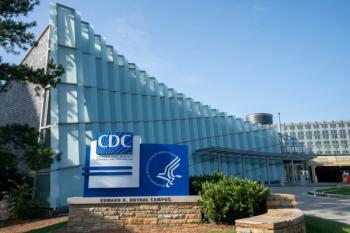
Ken Cohen, MD, FACP, discusses the importance of expanding cognitive screening for seniors.

Ken Cohen, MD, FACP, discusses the importance of expanding cognitive screening for seniors.

A 12-year study in China finds that individuals who dine out often face a higher risk of colon and rectal cancers, with obesity playing a mediating role.

Online racial discrimination, bias, and trauma are linked to anxiety and depression in Black adolescents.

Robert Andrews, CEO of the Health Transformation Alliance, addresses Medicaid rebates, cost-shifting concerns, and value-based pricing trends.

A self-help app based on cognitive behavioral therapy improved depression, self-esteem, and quality of life in adults with intellectual disabilities.

Robert Andrews, CEO of the Health Transformation Alliance, discusses the implications of the new TrumpRx platform on drug pricing policy.

A study finds rural and nonrural patients have similar follow-up times after positive stool-based DNA tests, supporting broader colorectal cancer screening access.

A 16-week Mediterranean diet reduced psoriasis severity and improved metabolic health in patients with mild to moderate psoriasis.

Colon cancer recurrence risk falls below 0.5% at 6 years post-surgery, offering a practical benchmark for defining cure, according to new research.

Study finds slight temperature shifts are linked to changes in physiological stress responses.

An eHealth survey revealed widespread confusion, low awareness of 2026 Medicare plan changes, and growing interest in artificial intelligence support.

The US government shutdown could lead to telehealth, ambulance payment, and insurance cost disruptions.

Experian Health’s 2025 State of Claims survey shows rising denial rates, data errors, and low artificial intelligence adoption despite providers’ belief in its potential.

Guselkumab becomes the first interleukin-23 inhibitor approved for children with plaque psoriasis or active psoriatic arthritis.

David Mitchell, PharmD, MBA, UC Davis, shares how collaboration between health systems and manufacturers is transforming patient access and outcomes for rare disease treatments.

A RAND report shows Medicare’s 3-year insulin savings model cut costs, improved access for beneficiaries, and offers lessons for future drug pricing reforms.

Evinacumab-dgnb approval expands treatment options for children with homozygous familial hypercholesterolemia (HoFH).

Stacy Knox, PharmD, BCPS, BCACP, DPLA, discusses how centralized pharmacy teams and electronic health record integration streamline prior authorizations, enhance provider efficiency, and offer patients transparent, real-time updates.

David Mitchell, PharmD, MBA, senior pharmacist manager and assistant clinical professor at UC Davis, addresses how health systems are overcoming financial, operational, and access challenges for patients with rare diseases.

New research highlights caregiver perspectives to improve colorectal cancer screening access for individuals with intellectual and developmental disabilities.

National survey data show rural residents are less likely to receive colorectal cancer screening, with socioeconomic and structural barriers driving the gap.

A randomized trial shows low-dose aspirin halved recurrence rates in patients with PI3K pathway gene alterations.

With vaccination rates slipping and new policies emerging, parents need to know what’s changing as kids head back to the classroom.

A Japanese study links external eating patterns to weight loss and glycemic improvements with glucagon-like peptide-1 receptor agonists.

Susan Monarez, PhD, warns of absent evidence, political pressure, and risks to public health after being fired last month by HHS Secretary Robert F. Kennedy Jr.

Data reveal a growing burden of early-onset type 2 diabetes, highlighting disparities and increased cardiometabolic risk

A new study highlights the epidemiological, humanistic, and economic impact of pediatric psoriasis, with findings showing greater challenges in moderate to severe cases.

Next-generation sequencing shows limited survival benefit but identifies key mutations that may inform future treatment strategies.

Daily potato consumption may improve body composition and vascular health without worsening blood sugar in adults with type 2 diabetes.

FDA expands selumetinib approval to younger children with NF1-related tumors.

259 Prospect Plains Rd, Bldg H
Cranbury, NJ 08512
© 2025 MJH Life Sciences®
All rights reserved.
